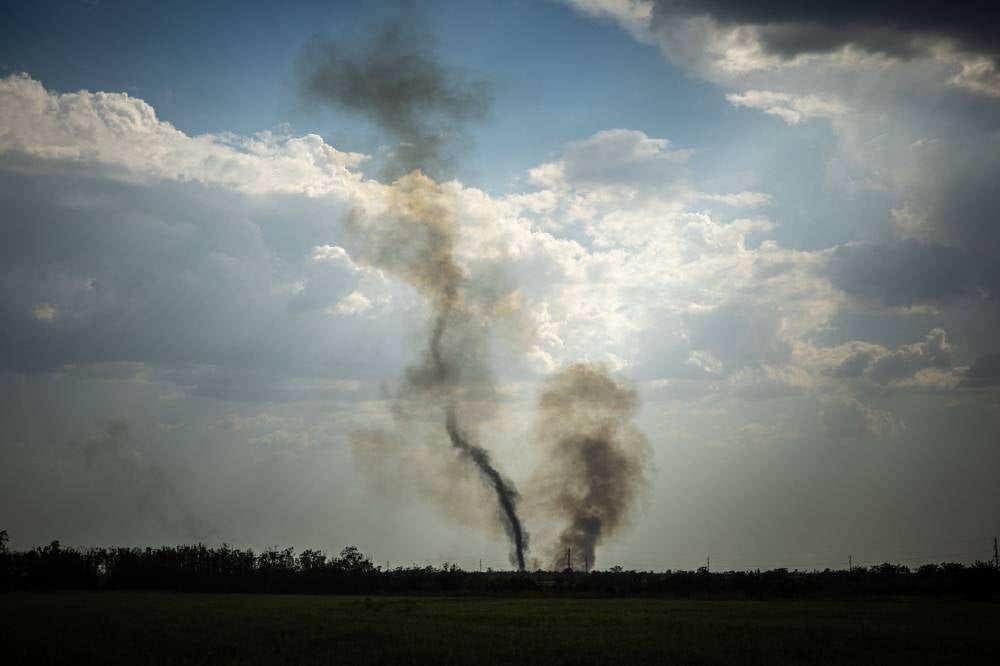Türkiye’s Grain Diplomacy: A Mediator at play
NIK LUQMAN WAN ZAINODDIN
When the world was only in the midst of baby steps to stave off the coronavirus pandemic effects, the international community was once again alarmed by the outbreak of war between Ukraine and Russia.
This war has culminated in the blockade of Ukrainian grains and fertilizers by Russia and has triggered food and energy crisis at the global level.
According to a report by the Nikkei Asia Review, given the fact that the warring nations constitute among the largest source of wheat imports, persistent conflict risks further disruptions in the supply of commodities and leads to inflationary pressure around the world.
True enough, prices of wheat, corn, and other grains have soared almost by 30 percent.
Moreover, the United Nations Development Programme (UNDP) reports that inflation in the commodity process hit parts of Africa, the Balkans, Asia, and elsewhere hard.
Oxfam and Save the Children’s also warned that one person was dying of hunger every 48 seconds in drought-prone places such as Kenya, Ethiopia, and Somalia, among others.
The World Food Programme also believes that “a record 345 million acutely hungry people are marching to the brink of starvation.”
Since the Ukraine war began, there have been sharp punitive measures against Russia. The campaign against Russia is mostly anchored by the West, leaving Russia looking for avenues elsewhere to regain its reach and influence.
In Europe, which is located geographically in proximity to the conflict, both Finland and Sweden applied to join the North Atlantic Treaty Organization (Nato), a transatlantic military alliance – the latest jumping on bandwagon amid the Russia’s incursion of Ukraine. Indeed, it is a move many see as an abandonment of decades of neutrality on the part of both the Nordic countries.
But elsewhere, countries have tried to maintain neutrality amid pressure from the West to reinforce further shunning of Russia.
The epitome would be the chair of the Group of 20, known as G20, Indonesia which tries to absorb Western pressure to alienate Russia from the international platform.
Indonesia instead maintains that G20 is a neutral platform. Despite this and against all odds, Türkiye took an advance step forward in brokering a deal between Russia and Ukraine.
Mediator role
Türkiye’s diplomatic balancing act between the two warring sides and President Erdoğan’s intensive diplomatic efforts contributed much to the success of the opening of the grain corridor.
On July 22, Russia, Ukraine, and Türkiye, together with the United Nations (UN) signed an agreement, which paved the way for the export of millions of tons of Ukrainian grain and Russian fertilizer through the black sea.
Invariably dubbed grain diplomacy, Türkiye’s success is attributed to the country’s foreign policy outlook.
Indeed, Ankara's ability to earn trust from both Kyiv and Moscow to opt for discussing issues at the table of negotiations was not an overnight success and was even by coincidence.
Ankara invariably navigates between Russian and Ukrainian sides, delicately balancing both economic and political interests.
In fact, the initiative was the direct result of Ankara’s policy towards both countries in pre and during the war.
Prior to the Russian incursion, President Recep Tayyip Erdoğan visited Kyiv and signed military cooperation and trade agreement with Ukraine, amid escalating tensions between Moscow and Western capitals.
And while the Western campaign imposes myriad sanctions to cripple Russia’s military and economy, Ankara has opted not to pursue the same policy approach.
But it was not all hassle-free on the part of Türkiye. The negotiations involved lengthy discussions and indeed, challenging ones, especially to bring warring parties to a negotiation table in such an intense environment.
The UN also came on board with Türkiye and thanked Türkiye for its “facilitation and perseverance” in the signing of the grain deal.
As the signatory of the 1936 Montreux Convention, which governs the ships' and warships' passage through the Bosphorus strait linking the Black Sea to the Mediterranean, Ankara reinforces its position as the mediator.
And Ankara realized the stakes were high, as the region and the world by extension are battered by soaring prices, and played a pivotal role to facilitate the peace talk for the opening of the grain corridor.
This includes the offer to establish a joint operation center in Istanbul for the transportation of grain.
Through the establishment of the joint center, coordinated implementation and supervision of the center would be the key to ensuring the grain corridor is a success.
For the record, it was agreed that a total of 20 personnel from the UN, Türkiye, Ukraine, and Russia would be stationed at the center.
To be sure, the creation of a grain corridor is the most positive development vis-à-vis Russia’s incursion on Ukraine.
Moving forward, it is hoped that the grain corridor would be able to serve as an important milestone for a future cease-fire and ultimately peace between the parties.
While it remains to be seen what the future holds for the Ukraine war, the fact is should Turkiye’s grain diplomacy did not take place, global inflation would prolong, and any possibility of peace is simply impossible.
The writer is a foreign affairs columnist and was a research fellow at IKMAS UKM-Nippon Foundation. He tweets at @Nluqman
Download Sinar Daily application.Click Here!














